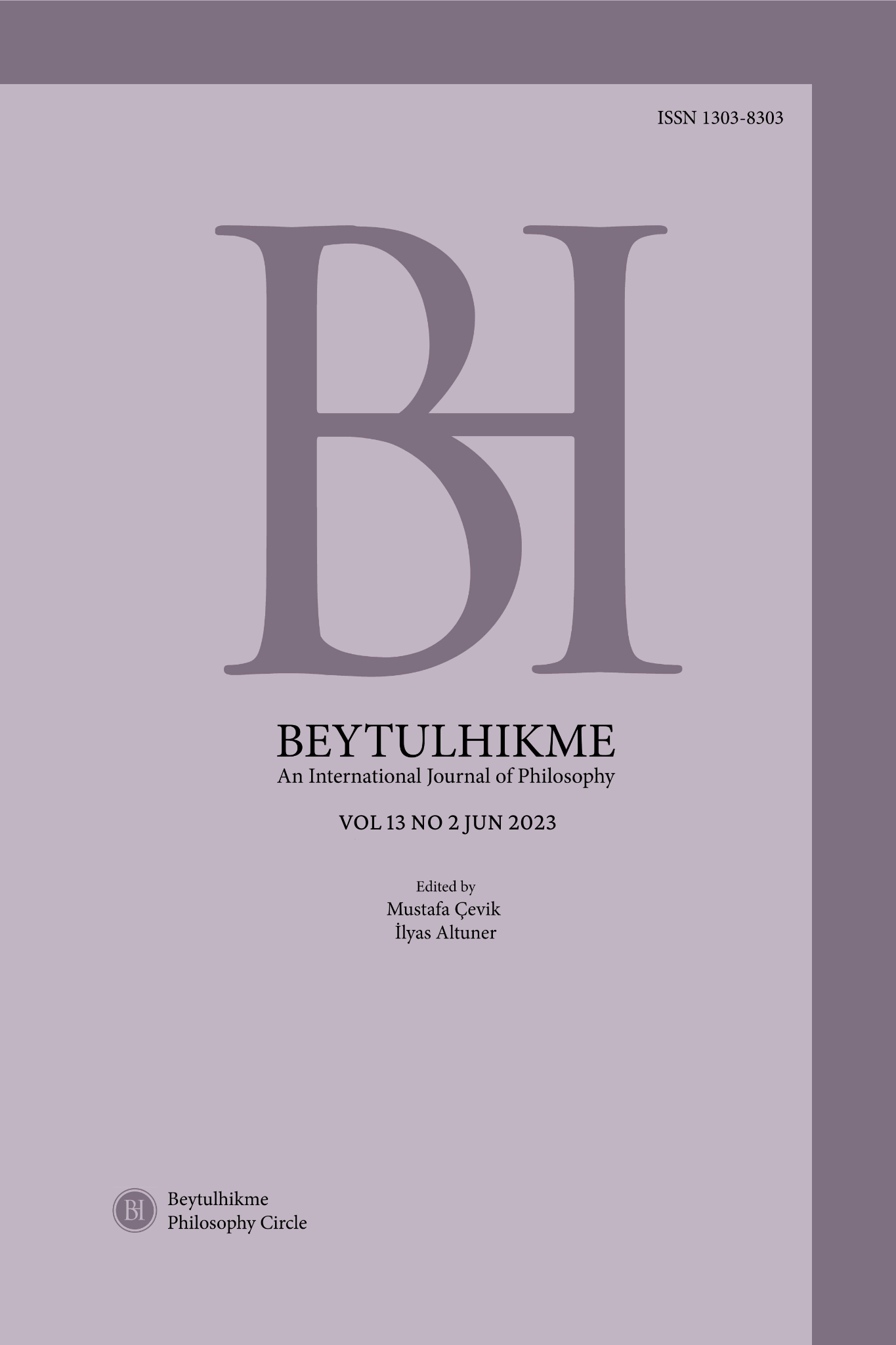Author :
Abstract
Canlı varlığın iç duyularından biri olarak kabul edilen mütehayyile gücü duyum ve akletme arasına yerleştirilir. Genel olarak bu güç Aristoteles’in fantazya olarak ifade ettiği güce karşılık gelirken İslam felsefesi içerisinde “musavvire”, “vehim”, “muhayyile”, “mütehayyile” ve “ortak duyu” olarak ifade edilmiştir. Bu çalışmada İslam düşünce tarihinin iki büyük filozofu Fârâbî ile İbn Sînâ’nın bu güce dair görüşlerini incelenmeye çalışılacağım. Her iki filozofun da nefsin güçlerine dair şemalarında yer alan ve “mütehayyile” olarak ifade edilen bu güce Fârâbî’nin atfettiği eylemlerle İbn Sînâ’nın atfettiği eylemler önemli ölçüde değişmektedir. Çalışmada bu farklılıkların öne çıkarılması, bunların nedenleri ve sonuçlarının ele alınması ve bu gücün geçirdiği dönüşümün ortaya konulması amaçlanmaktadır.
Keywords
Abstract
The power of imagination, which is accepted as one of the inner senses of the animal soul, is placed between sensation and reasoning. In general, while this power corresponds to the power that Aristotle expresses as phantasia, it is described as “musawwira”, “mutahayyilah”, “wahm” and “common sense” in Islamic philosophy. In this study, I attempt to examine the views of two great philosophers of the history of Islamic thought, al-Fārābī and Ibn Sīnā on this power. The actions attributed by al-Fārābī to this power, which is included in the schemas of both philosophers regarding the powers of the soul and expressed as “imagination”, and the actions attributed by Ibn Sīnā are significantly different. In this study, it is aimed to highlight these differences, to deal with their causes and consequences, and to reveal the transformation of this power.





